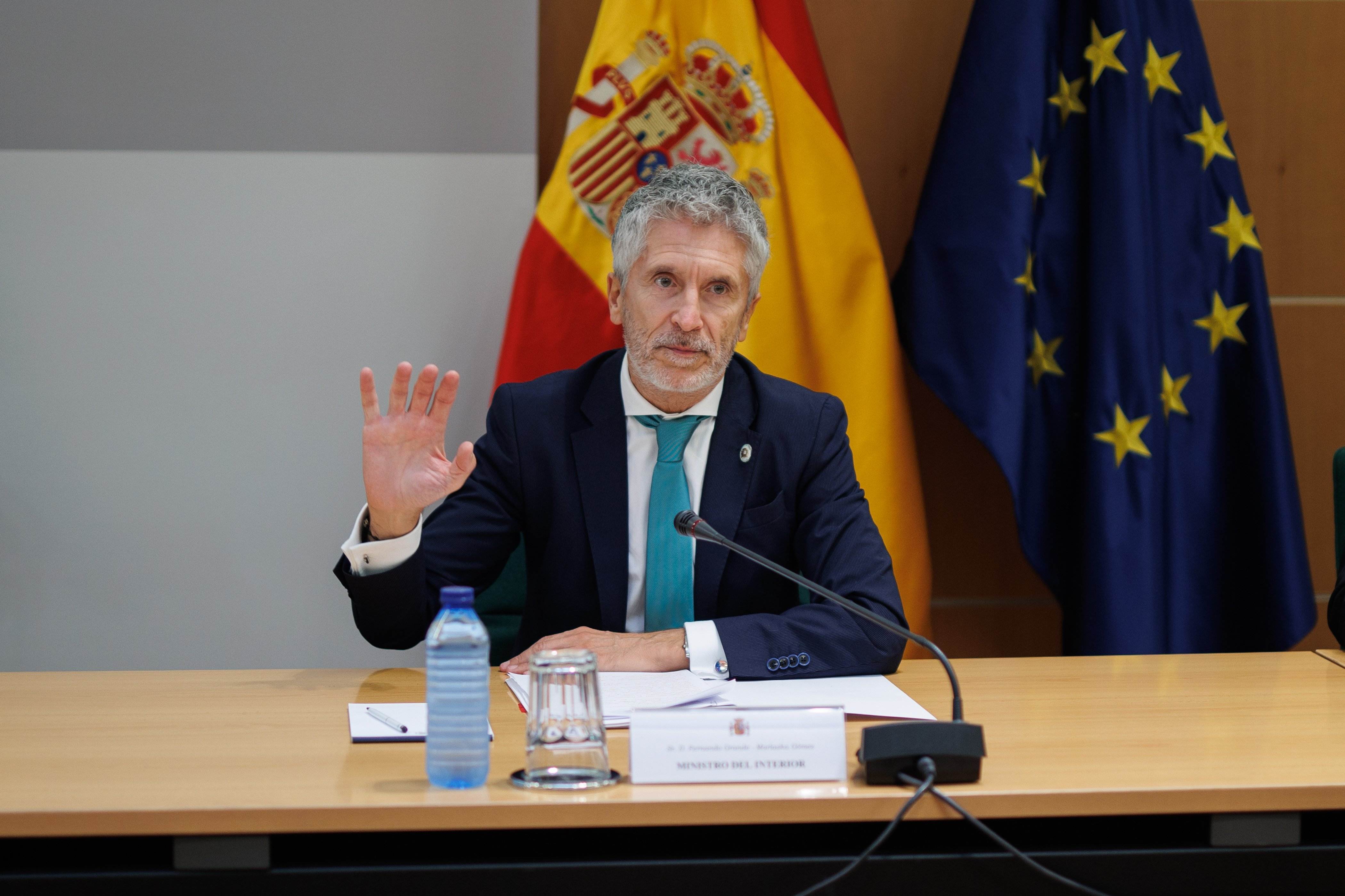Spain's acting interior minister, Fernando Grande-Marlaska, has called for "statesmanship" and "responsibility" to prevent the proliferation of "messages that generate mistrust and alarmism". With these words, the minister addressed the parliamentary parties in a meeting this Friday afternoon following the anti-terrorist alarm generated by the war in Gaza and which on Tuesday led the interior ministry to add measures of reinforcement to the current terrorism alert level, already situated at Level 4 out of 5, the second highest status. After the meeting, Marlaska insisted on "not identifying irregular immigration with the terrorist phenomenon", referring to the recent attack in Belgium perpetrated by a person in an irregular immigration situation. According to the minister, the meeting took place in a "cordial" and "constructive" atmosphere.
In this context of psychosis, also fueled by various fake news stories that have spread rapidly, Marlaska stressed the need to avoid disseminating messages that fuel "disinformation" and "hateful and xenophobic discourses", which could, he said, end up degrading towards Islamophobia, anti-Semitism or racism. That is why he asked members of the public to obtain information through official channels and said that "irregular immigration" should not be linked to terrorist attacks and, in this regard, he recalled that it is a "dangerous" link, recalling that all people who enter Spain appear "in the database".
After the alert, the interior minister last Tuesday ordered the immediate adoption of "complementary security measures within Alert Level 4 out of 5", which is the level that has been in force since June 2015, following the terror attacks that took place then in France, Tunisia, Kuwait and Somalia. Specifically, he ordered a reinforcement of deployment in "particularly sensitive points throughout Spanish territory and the increase of anti-terrorist measures by the state security forces". The police reinforcements affect the embassies in Spain of Israel and Palestine, as well as those of the United States, United Kingdom, Turkey, France, Jordan, Lebanon, Sweden and Denmark, among other points of interest such as synagogues and other religious centres
Marlaska avoided disagreements with any party, taking a conciliatory line, aware that before the meeting, the acting Spanish opposition leader, Alberto Núñez Feijóo of the People's Party (PP), had called on the public to be "responsibly alert" in the face of the terrorist threat generated by the war in Gaza. "We ask citizens, yes, to be alert, to take certain precautions", said the leader of the main Spanish party of the right in an interview with Telecinco, where he was asked if the anti-terrorist alert should be raised to level 5, and whether, in a likely consequence of that, the army should be brought onto the street. Feijóo criticized the fact that the acting PM, Pedro Sánchez, had not provided him with information on this matter and, despite the meeting this afternoon, complained that Spain's Anti-Terrorist Pact should have been called earlier.
ERC, absent due to agenda problems
The only group that did not attend the meeting this Friday was the Catalan Republican Left (ERC). According to party sources, all its MPs were returning to Barcelona yesterday afternoon, when the interior ministry called the meeting in Madrid for this afternoon. Once the call was made, none of the Republican MPs was able to go to Madrid, taking into account the rail chaos experienced by RENFE affecting connections between the Catalan and Spanish capitals in the last few hours. Nevertheless, the same sources said that ERC's spokesperson in Congress, Gabriel Rufián, spoke by phone with Marlaska before and after the conclave.

